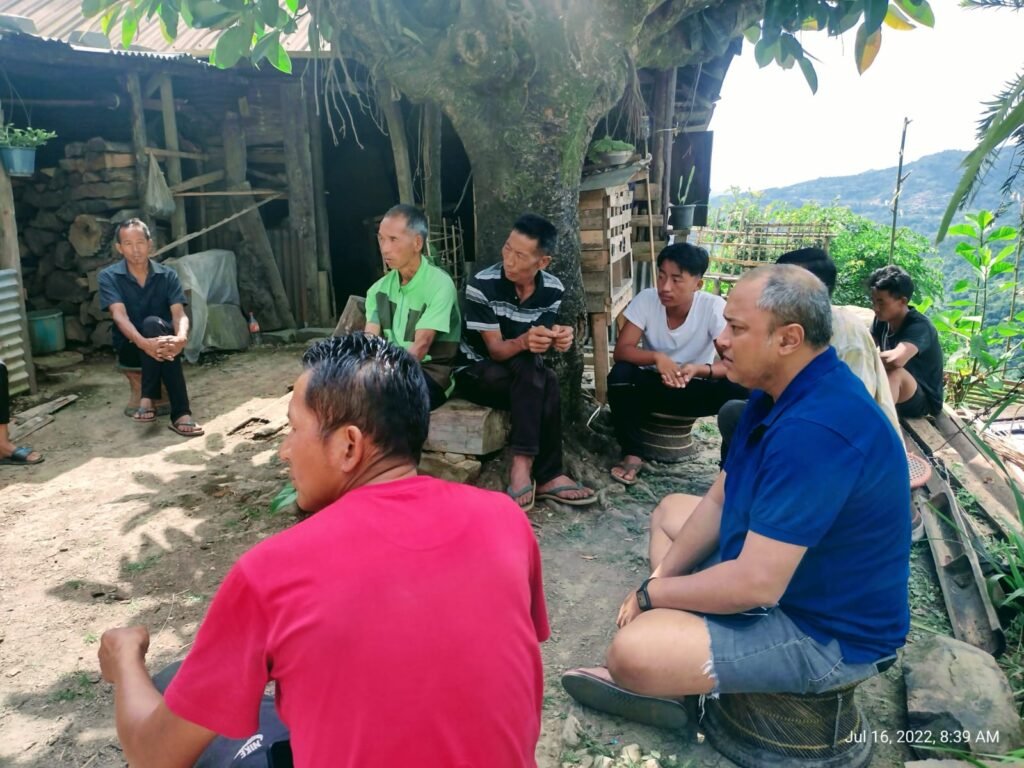At Kirat Biotech, innovation is at the heart of everything we do. Our latest breakthrough, the hybrid solar dryer, is a perfect example of how creative thinking and sustainable practices can transform rural agriculture. By combining traditional solar drying methods with cutting-edge technology—and even recycled materials—we’ve developed a solution that drastically reduces costs, boosts efficiency, and increases income for farmers.
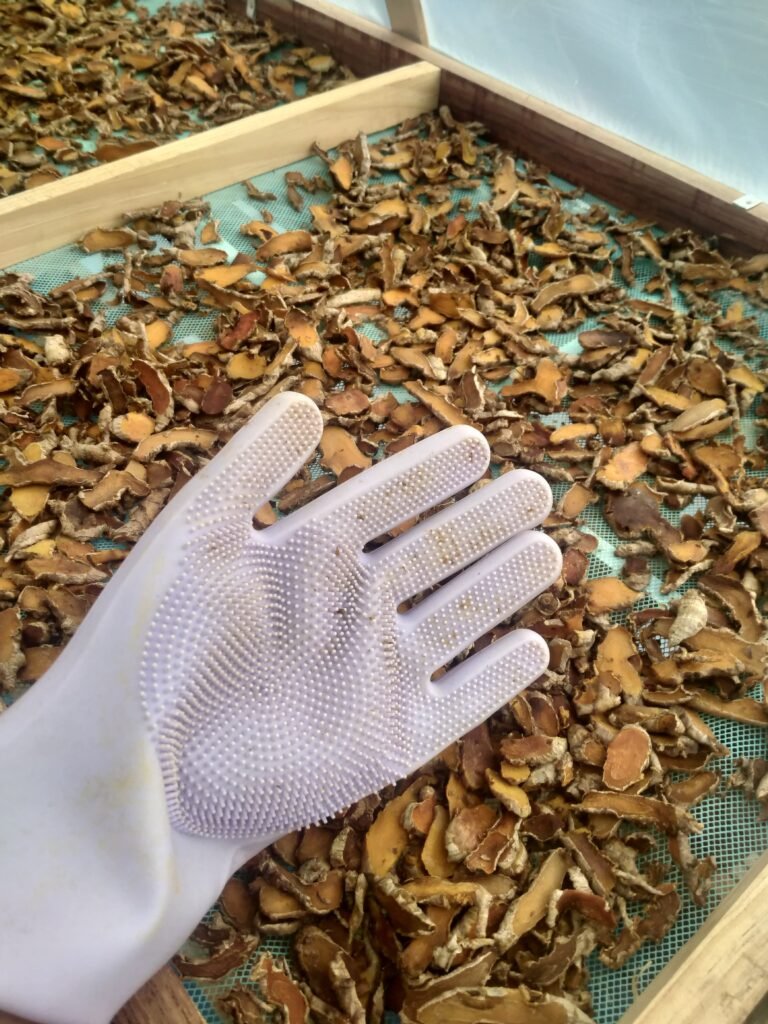
From YouTube Inspiration to a Patent-Pending Innovation
The journey to creating our hybrid solar dryer began with a spark of inspiration from YouTube. As we explored various DIY solar drying projects, we saw potential in blending these traditional designs with modern technology. The real innovation came when we decided to incorporate recycled beer cans into the mix.
These beer cans are repurposed to create solar accumulators, which capture and amplify solar energy, significantly increasing the efficiency of the drying process. The idea of using recycled materials like beer cans is not just innovative—it’s a game-changer. By turning waste into a valuable resource, we’ve developed a dryer that is both environmentally friendly and highly effective. This unique approach is so promising that we’ve filed for a patent, and we’re excited about the potential impact this technology can have on sustainable agriculture.
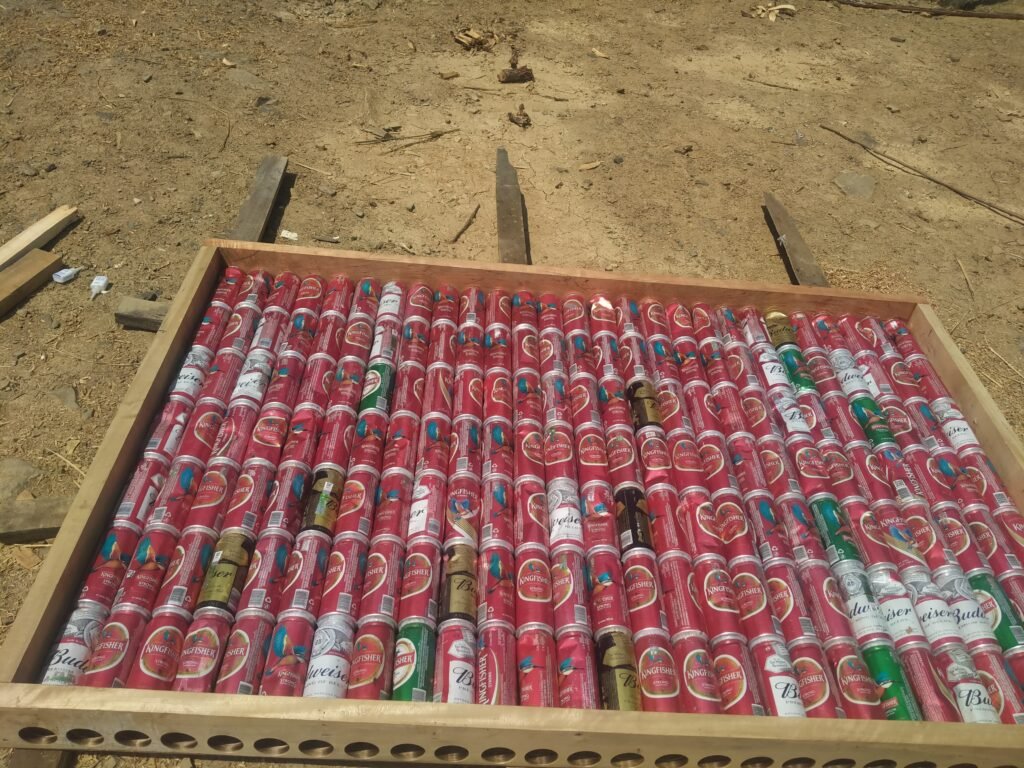
Sustainable Construction with Local Materials and Labor
Our hybrid solar dryers are built using locally available materials such as bamboo and wood, along with the recycled beer cans. This combination makes the dryers more affordable while ensuring that they remain sustainable. Bamboo and wood are not only abundant in the regions where we operate but also have a low environmental impact. By reducing the need to transport materials over long distances, we minimize the carbon footprint associated with construction.
Local labor is also a critical component of our approach. We train community members in the construction, maintenance, and repair of these dryers, ensuring that the knowledge and skills stay within the community. This empowers locals to take ownership of the technology, allowing them to replicate, maintain, and even innovate further on the design. The result is a self-sustaining cycle of knowledge and technology that benefits the entire community.
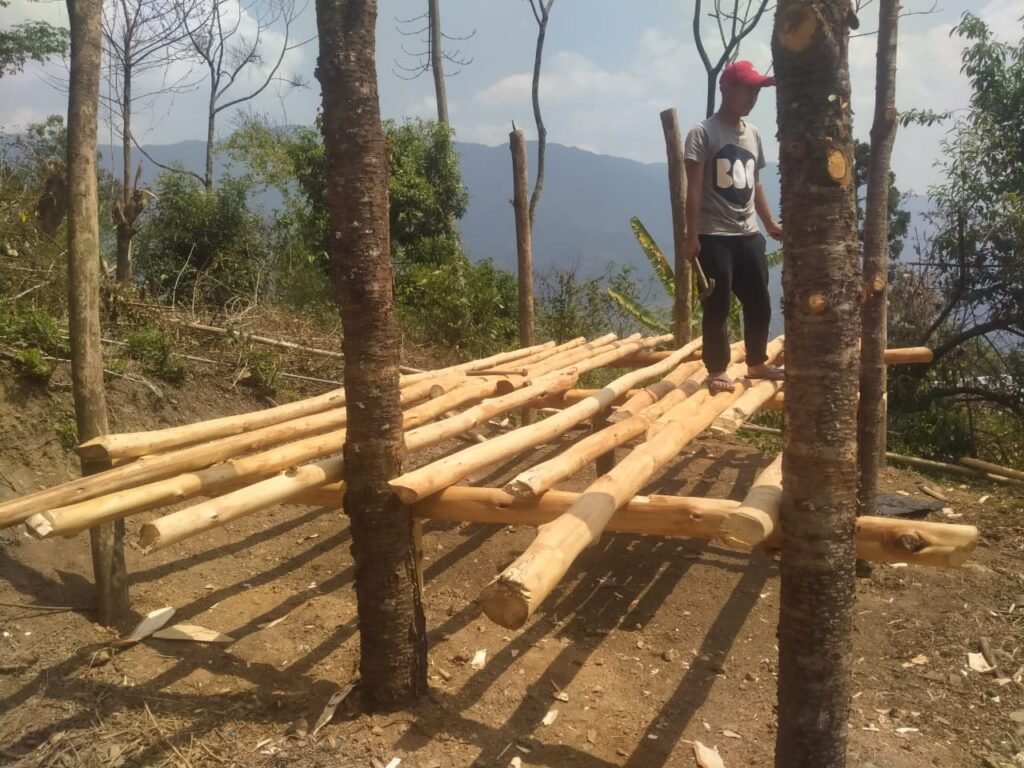
Growing Popularity and Expansion Across the Northeast
Our first two hybrid solar dryers were installed in Nagaland and Arunachal Pradesh, and the response was phenomenal. Farmers quickly recognized the benefits of this technology, which allowed them to dry their produce more efficiently and at a lower cost. The recycled beer cans, acting as solar accumulators, made a significant difference by enhancing the drying process, leading to faster and more consistent results.
The success of these initial units led to high demand, and we soon built four additional units in neighboring areas. The popularity of our hybrid dryers isn’t just about their innovative design—it’s about the tangible benefits they bring to farmers. By reducing costs and increasing efficiency, these dryers help farmers preserve more of their crops, leading to higher profitability and a more sustainable livelihood.
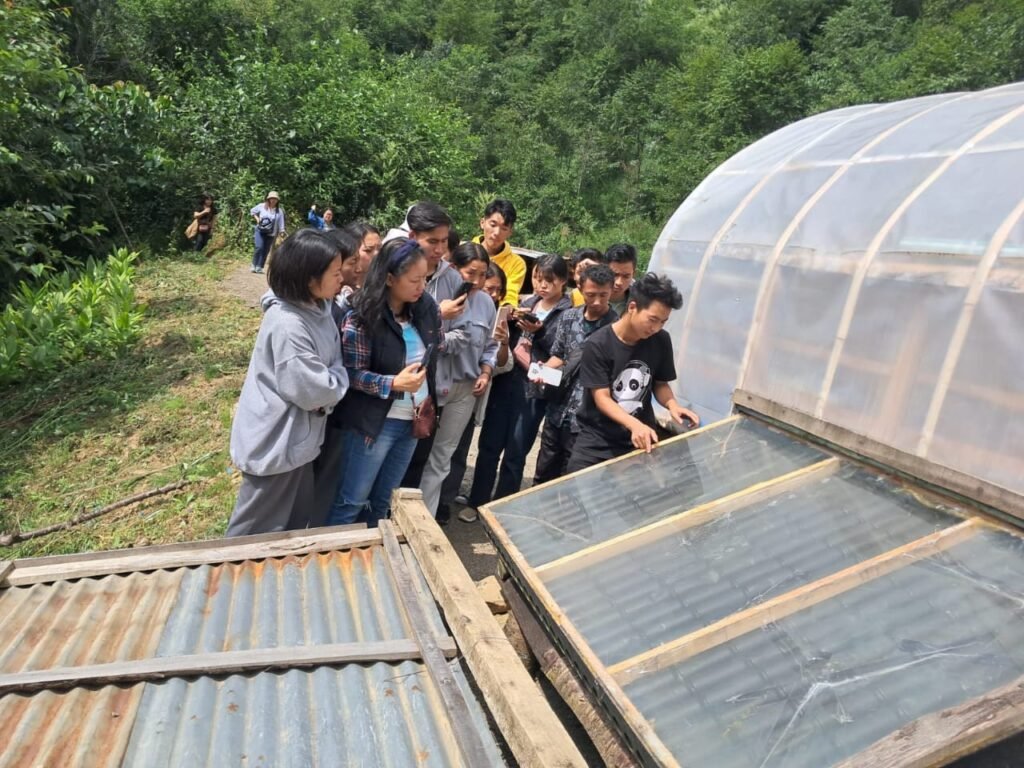
A Vision for Sustainable Profitability
At Kirat Biotech, we believe that sustainable technology should also be profitable for those who use it. Our hybrid solar dryers are a testament to this belief. By utilizing recycled materials like beer cans and combining them with locally sourced bamboo and wood, we’ve created a technology that is both cost-effective and efficient. Farmers who adopt this technology can increase their income while also contributing to environmental conservation.
We’re actively promoting this technology to farmers across Northeast India, providing training and support to ensure they can fully benefit from the dryers. As we await the patent for our unique design, we’re focused on making this technology accessible to as many farmers as possible, helping them to improve their livelihoods in a sustainable way.
Our hybrid solar dryers represent a fusion of traditional knowledge, modern technology, and innovative thinking. By turning waste into a resource and empowering local communities, we’re building a brighter, more sustainable future for agriculture in Northeast India.
